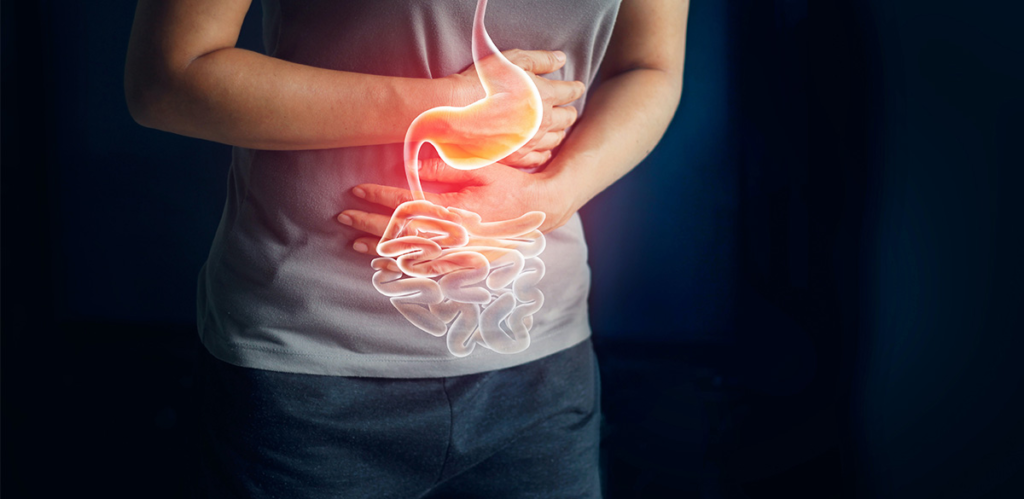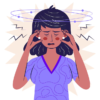Ayurvedic Treatments for Crohn’s Disease: A Holistic Approach to Managing Inflammatory Bowel Disease

Ayurvedic Treatments for Crohn’s Disease: A Holistic Approach to Managing Inflammatory Bowel Disease Crohn’s disease is a type of inflammatory bowel disease (IBD) that causes chronic inflammation of the digestive tract, often leading to symptoms like abdominal pain, diarrhea, weight loss, and fatigue. Conventional treatments typically involve medications, dietary changes, and in some cases, surgery. However, many people seek complementary therapies to manage their symptoms and improve their quality of life. Ayurveda, a traditional system of medicine from India, offers a holistic approach to health and wellness that may provide relief for those suffering from Crohn’s disease.
Understanding Ayurveda
Ayurveda, which translates to “the science of life,” is a holistic system of medicine that has been practiced for over 5,000 years. Each individual has a unique constitution or Prakriti, which is a combination of these doshas. Disease, according to Ayurveda, arises when these doshas become imbalanced.
Ayurvedic treatment aims to restore balance to the doshas through a combination of diet, herbal remedies, lifestyle changes, and other therapies. For managing chronic conditions like Crohn’s disease, Ayurveda focuses on reducing inflammation, improving digestion, and strengthening the immune system.
The Ayurvedic Perspective on Crohn’s Disease
In Ayurveda, Crohn’s disease can be related to an imbalance of Pitta dosha, which governs the digestive fire (Agni) and the metabolism of nutrients. When Pitta is aggravated, it leads to excessive heat and inflammation in the digestive tract. This can cause symptoms similar to those experienced in Crohn’s disease, such as inflammation, pain, and digestive disturbances.
The Ayurvedic approach to managing Crohn’s disease involves addressing this Pitta imbalance while simultaneously working to support digestion and strengthen the overall health of the gastrointestinal tract.
Ayurvedic Treatments for Crohn’s Disease
- Dietary Recommendations
Diet plays a crucial role in Ayurveda. For Crohn’s disease, dietary recommendations focus on reducing Pitta, soothing inflammation, and supporting digestion:
Cooling Foods: Incorporate cooling, anti-inflammatory foods like cucumbers, melons, leafy greens, and coconut. These help to balance Pitta and soothe the digestive tract.
Avoid Spicy and Acidic Foods: Spicy, acidic, and hot foods can aggravate Pitta and lead to increased inflammation. Avoid foods like chili peppers, tomatoes, and citrus fruits.
Warm, Cooked Foods: Opt for warm, well-cooked foods that are easy to digest. Soups, stews, and porridge are ideal choices.
Hydration: Drink plenty of water and herbal teas such as chamomile, licorice root, and fennel, which help soothe the digestive tract.
- Herbal Remedies
Ayurvedic herbs are often used to manage inflammation, improve digestion, and support overall health:
Turmeric (Curcuma longa): Known for its anti-inflammatory properties, turmeric can help reduce inflammation and pain associated with Crohn’s disease.
Aloe Vera: Aloe vera has soothing and healing properties that can help reduce inflammation and support gut health.
Ashwagandha (Withania somnifera): This adaptogenic herb can help reduce stress and improve overall vitality, which can be beneficial for managing chronic illness.
Triphala: A traditional Ayurvedic formula consisting of three fruits (Amalaki, Bibhitaki, and Haritaki) that promotes digestion and detoxification while balancing all three doshas.
Slippery Elm (Ulmus rubra): This herb helps to soothe and protect the mucous membranes of the digestive tract, reducing irritation and inflammation.
- Panchakarma
Panchakarma is a series of detoxifying treatments designed to cleanse the body of accumulated toxins (Ama) and restore balance to the doshas. For Crohn’s disease, specific Panchakarma therapies can be beneficial:
Basti: This enema therapy involves the administration of medicated oils or herbal decoctions into the rectum. It helps to cleanse and nourish the lower gastrointestinal tract.
Abhyanga: A full-body oil massage that helps to calm the nervous system, reduce inflammation, and promote relaxation.
Shirodhara: A therapy where warm, medicated oil is gently poured over the forehead, promoting mental relaxation and reducing stress, which can be beneficial for managing chronic conditions.
- Lifestyle Recommendations
In addition to diet and herbal remedies, certain lifestyle changes can support overall health and manage symptoms:
Stress Management: Practice stress-reducing techniques such as yoga, meditation, and deep breathing exercises. Stress can exacerbate symptoms of Crohn’s disease, so managing it effectively is crucial.
Regular Exercise: Gentle exercises like walking, swimming, or yoga can help improve digestion, boost overall health, and reduce stress.
Adequate Sleep: Ensure you get enough restful sleep each night to support healing and maintain overall well-being.
Mindful Eating: Eat slowly and mindfully, chewing food thoroughly. This aids digestion and helps prevent overeating, which can exacerbate symptoms.
Integrating Ayurveda with Conventional Treatments
While Ayurveda offers many valuable insights and treatments, it’s essential to integrate these approaches with conventional medical care. Crohn’s disease is a complex condition that often requires a multi-faceted approach to management. Always consult with your healthcare provider before starting any new treatment regimen, including Ayurvedic therapies.
Combining Ayurveda and Conventional Medicine
Working with a healthcare team that includes both conventional and Ayurvedic practitioners can help you develop a comprehensive treatment plan tailored to your specific needs.
Conclusion
Ayurvedic treatments offer a holistic approach to managing Crohn’s disease, focusing on balancing the doshas, reducing inflammation, and supporting digestive health.
However, it’s crucial to remember that Ayurveda should be used in conjunction with conventional medical treatments. Always consult with your healthcare provider to create a personalized treatment plan that addresses all aspects of your health.









Leave a reply